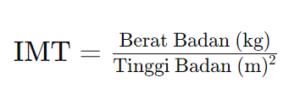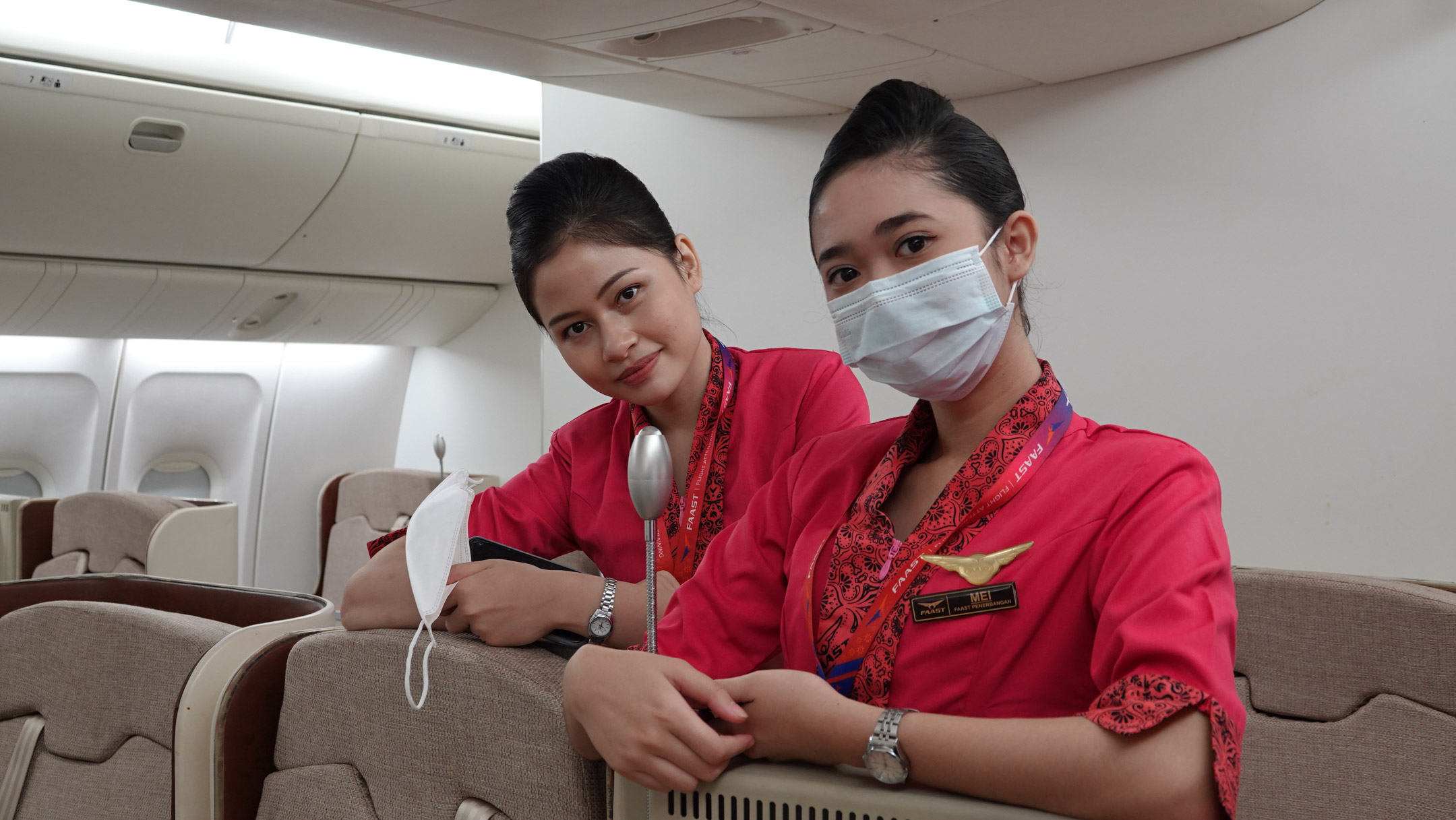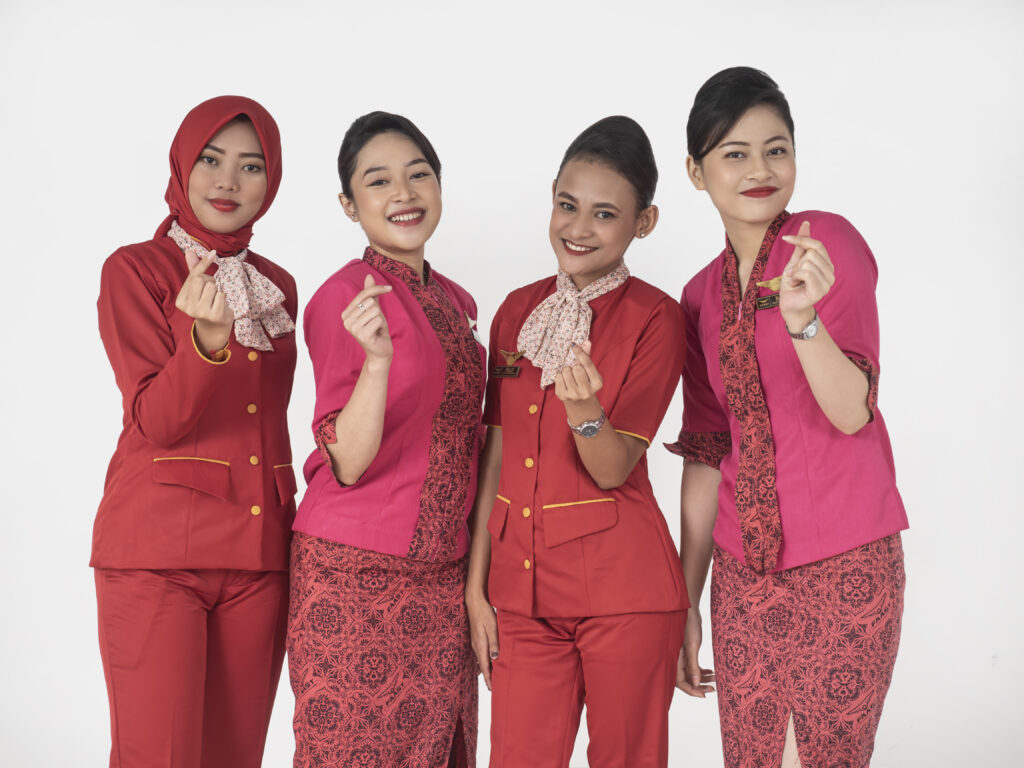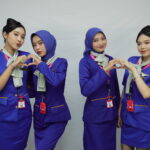Flight Attendant Health Test
The flight attendant health test is a series of medical examinations that prospective flight attendants must pass to ensure that they are in good physical and mental condition to carry out their duties.. This test covers several aspects of health, including:
- General Physical Examination: Includes height and weight measurements, blood pressure, and heart rate to ensure basic health parameters.
- Vision Test: Visual acuity check (both with and without glasses), color blindness test, and other checks to ensure that prospective flight attendants have good enough eyesight to see instruments and safety signs.
- Hearing Test: Check to make sure the hearing is working properly, remembering the importance of being able to hear instructions and communicate with other passengers and crew.
- Dental Checkup: Dental and oral examination to ensure there are no health problems that could interfere with work.
- Blood and Urine Tests: To check general health conditions and detect disease or use of illegal drugs.
- Lung and Heart Examination: Includes chest x-ray and EKG (electrocardiogram) to ensure there are no problems with the lungs and heart that could be dangerous during the flight.
- Psychological Testing: Mental and emotional evaluation to ensure prospective flight attendants are able to handle stress, work in a team, and interact with passengers from various backgrounds.
- Skin Examination and Personal Hygiene: To ensure cleanliness and good appearance, which is especially important in an aviation industry that emphasizes professionalism and presentation.
Each airline may have slightly different standards and specific procedures, but in general, The above aspects are part of the flight attendant health test. The main purpose of this test is to ensure that flight attendants can carry out their duties effectively and ensure the safety and comfort of passengers during the flight.
Flight Attendant Health Test: What is the ideal weight for an Indonesian flight attendant
A flight attendant's ideal body weight is usually measured based on body mass index (IMT) healthy one, which is a measure of balance between body weight and height. A healthy BMI usually falls within the range 18,5 until 24,9. However, some airlines may have special requirements regarding weight and height.
To calculate ideal body weight, use the BMI formula, we can use the following formula:

For example, if a flight attendant has height 165 cm (1,65 meter), then the ideal healthy body weight can be calculated as follows:
1. Lower limit of BMI (18,5):
Minimum Ideal Body Weight = 18,5 x (1,65)²
= 18,5 x 2,7225 ≈ 50,3 kg
2. Upper limit of BMI (24,9):
Maximum Ideal Body Weight = 24,9 x (1,65)²
= 24,9 x 67,8 ≈67,8 kg
So, for high 165 cm, ideal body weight ranges from approx 50,3 kg to 67,8 kg.
However, some airlines may apply more specific or strict standards regarding weight and body proportionality. It's always a good idea to refer to a specific airline's policy if you're looking for more detailed and accurate information.
Ideal Body Weight for a Flight Attendant
The ideal body weight for flight attendants is generally adjusted to height and is considered based on body proportionality. Many airlines use Body Mass Index (IMT) as a template, but they also consider aesthetic aspects and physical fitness that support work performance.
The following is a general guide to calculating ideal body weight using BMI:

For flight attendants, A healthy BMI usually ranges between 18,5 until 24,9.
Ideal Weight Guide for Some Heights:
- High 160 cm: Ideal weight around 47,4 kg – 63,9 kg
- High 165 cm: Ideal weight around 50,3 kg – 67,8 kg
- High 170 cm: Ideal weight around 53,5 kg – 72,0 kg
- High 175 cm: Ideal weight around 56,6 kg – 76,4 kg
Additional Factors Airlines Look At:
- Body Proportionality: Apart from body weight, Body proportionality is also a concern, so that the appearance remains attractive and in accordance with the airline's image.
- Physical Fitness: Flight attendants must have good physical fitness to handle physically demanding tasks, such as lifting luggage and dealing with emergencies.
- General Health: Prospective flight attendants must be free from health conditions that could interfere with performance during the flight.
Airline Policy:
Each airline may have specific standards and requirements regarding the weight and height of flight attendants. Therefore, Aspiring flight attendants are advised to check the specific requirements of the airline they wish to apply to.
That's what the discussion is about “Flight Attendant Health Test: What is the ideal weight for an Indonesian flight attendant”. If you have a different answer from the admin, Please write it in the comments column..
Read Also : Tips for Passing Flight Attendant Selection
FAAST Aviation Flight Attendant School registration information : Sister Melia 0857-7272-7722






















Leave a Reply